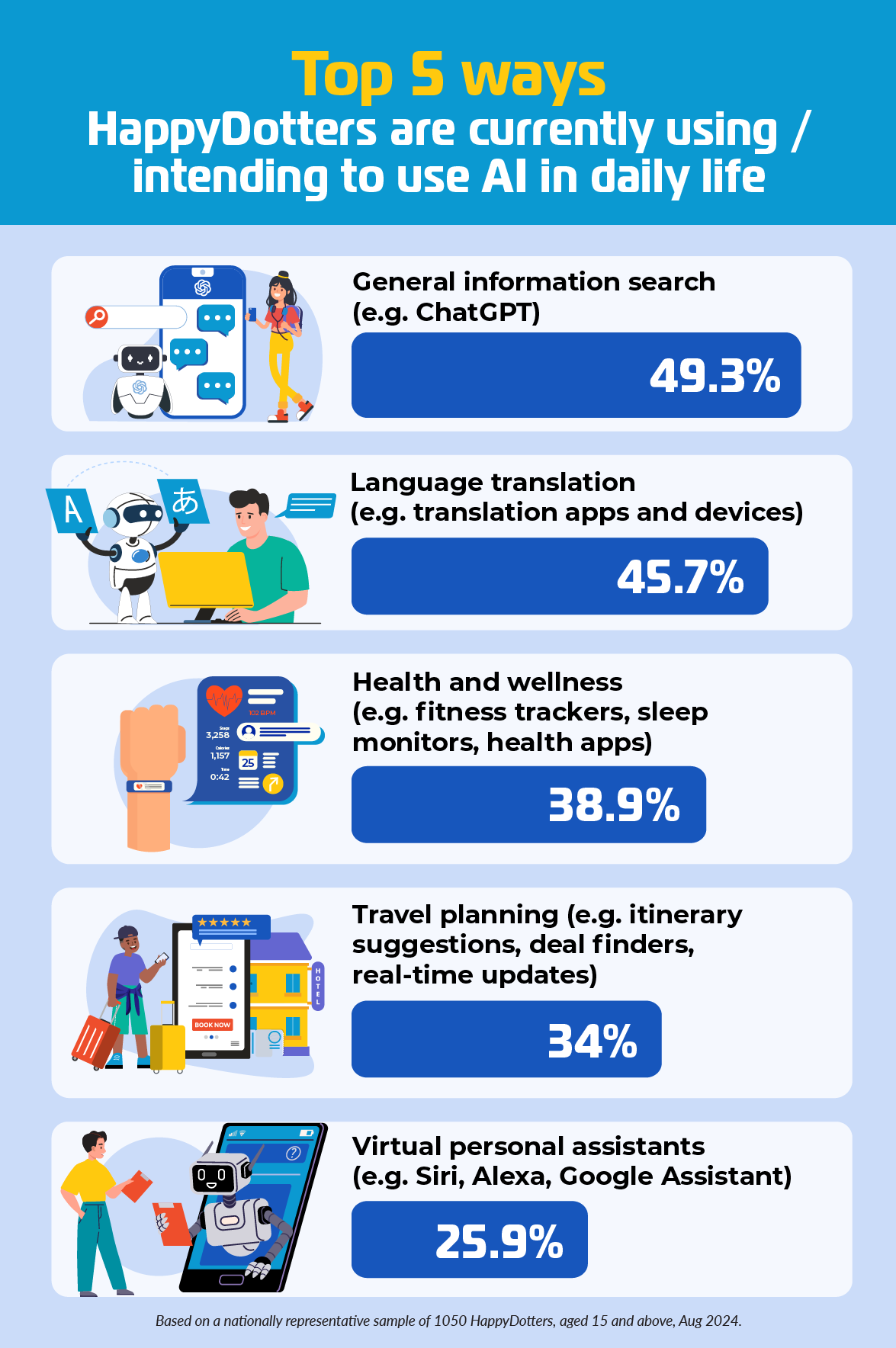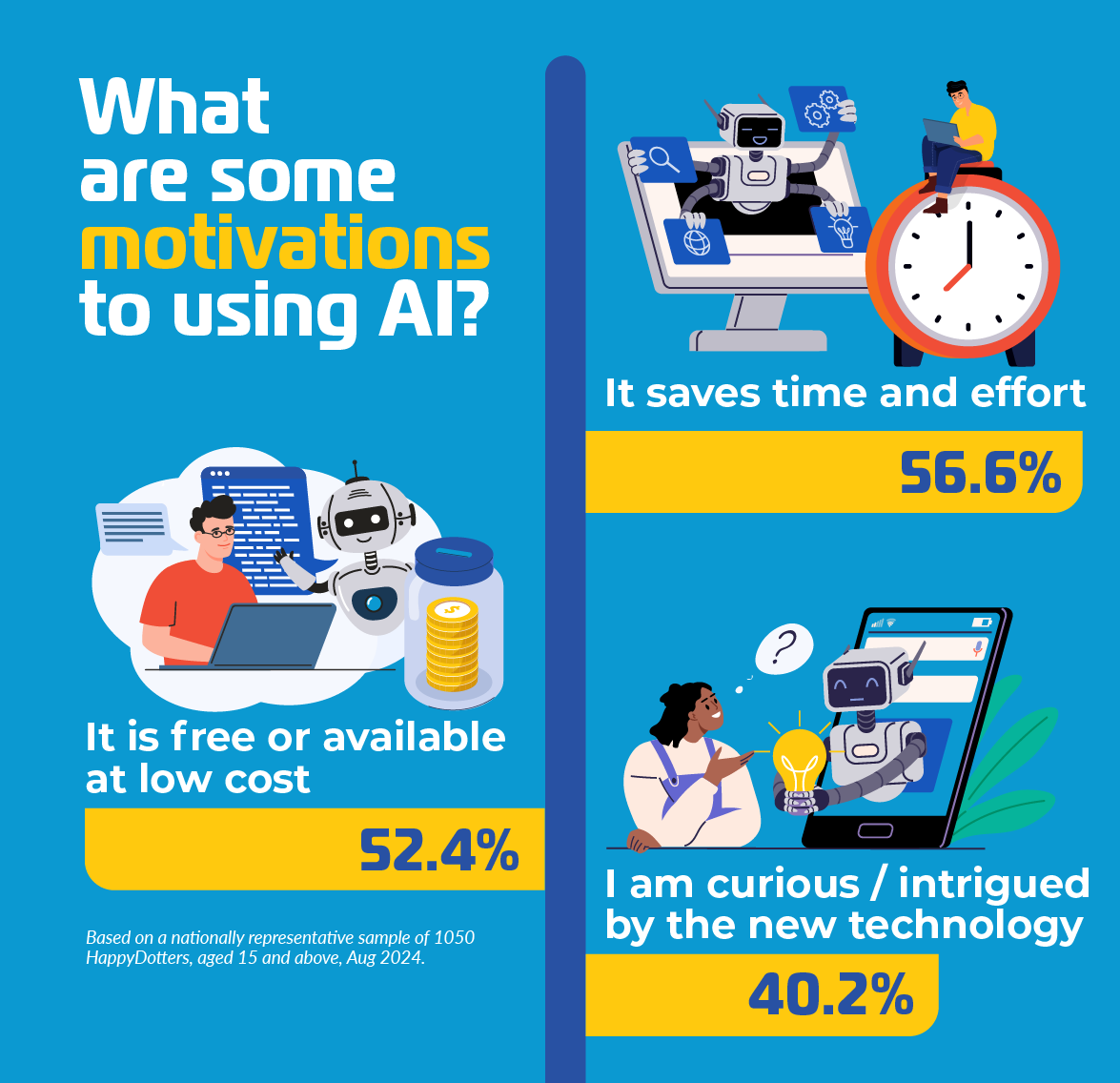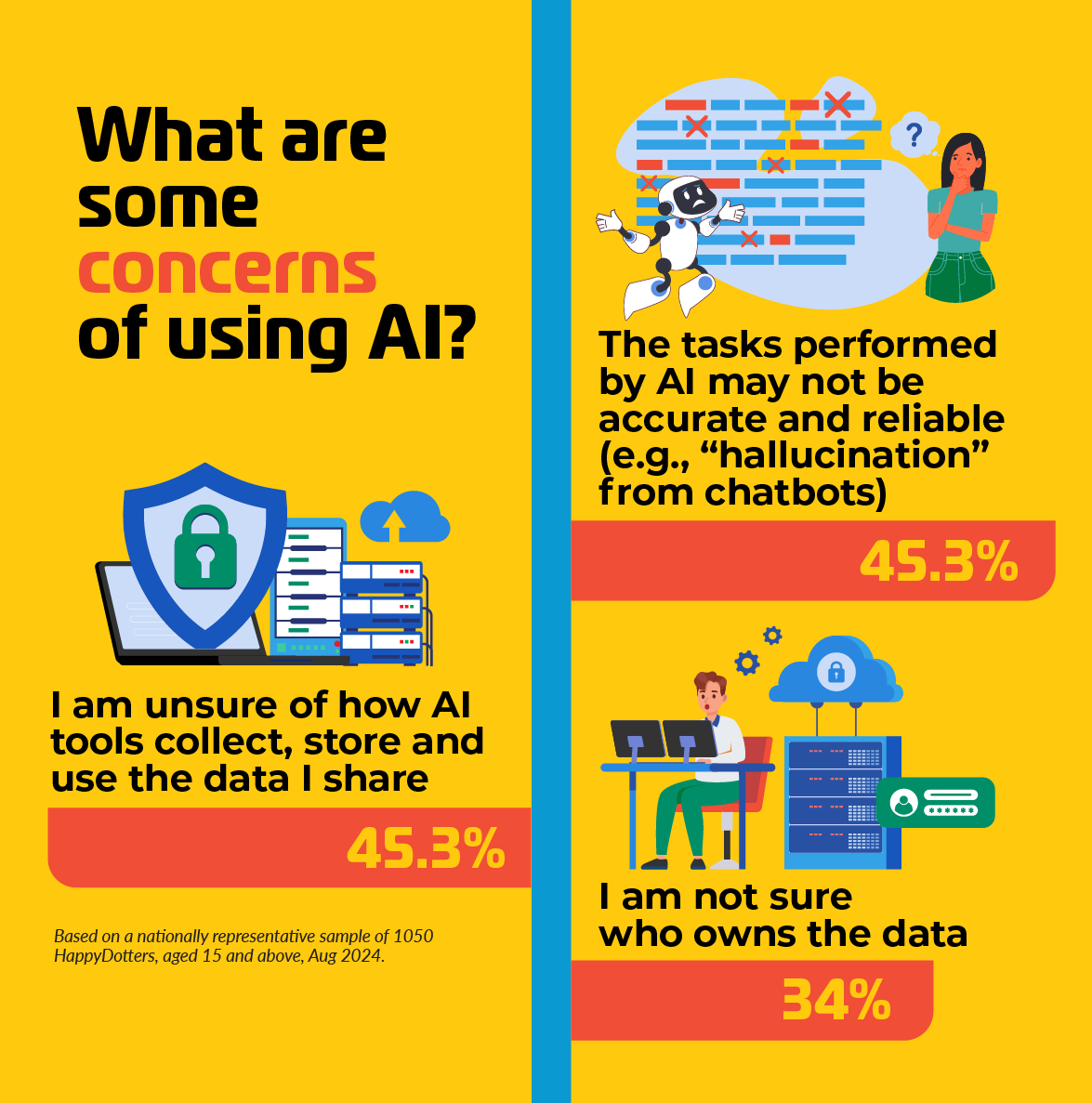Integrating AI in our daily lives:
The new normal
Artificial Intelligence (AI) has become a part of our everyday routines, influencing how we live, work, and interact with technology. Whether it be through health apps that monitor our well-being or personal assistants that manage our schedules, AI is slowly but surely blending into our day-to-day.
So, how exactly are Singaporeans embracing this technology? Let’s dive into the ways AI is being integrated into our daily life and the perceptions surrounding it.

Nearly half (49.3%) use AI for general information searches, turning to tools like ChatGPT to quickly find answers and solutions. Language translation apps are another popular choice, with 45.7% of users relying on AI-driven platforms to break through language barriers, whether for travel, work, or social interactions. In the health and wellness sector, 38.9% use AI-powered fitness trackers and health apps to monitor their activity levels, track nutrition, and improve overall well-being. Travel planning has also seen increased AI usage, with 34.0% of users leveraging AI for customized itineraries, finding the best deals, and getting real-time travel updates. Finally, 25.9% of HappyDotters are managing their daily tasks more efficiently with virtual assistants like Siri, Alexa, and Google Assistant, which streamline reminders, scheduling, and everyday commands.

When asked what drives them to use AI, 56.6% of HappyDotters value AI for its time-saving and effort-reducing capabilities to streamline tasks. Second, 52.4% are drawn to AI’s affordability, with many tools being either free or low-cost. And let’s not forget the tech enthusiasts: 40.2% are driven by sheer curiosity and fascination with exploring the latest technology. These reasons reveal how AI is capturing our interest and making life a lot easier.

45.3% of HappyDotters is concerned about the accuracy and reliability of AI outputs, such as the risk of “hallucinations” from chatbots. Similarly, 45.3% worry about how AI tools manage personal data—how it’s collected, stored, and used. Additionally, 34.0% are uncertain about data ownership, which adds to the overall unease. These concerns highlight the need for greater transparency and trust in AI technologies.
These findings provide valuable insights into the factors influencing AI adoption in personal and work lives. As we move forward, addressing concerns around data management and reliability will be crucial for ensuring that AI can be both trusted and widely embraced.
Share your views on ongoing social issues in Singapore through our surveys and check out fresh insights of What Singapore Thinks every month!
Mingle with other HappyDotters and take part in other fun polls on our Telegram! LIKE our Facebook and FOLLOW our Instagram to know more about us.
